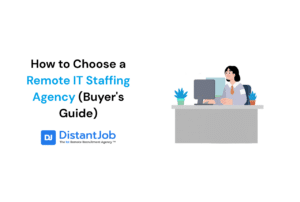Recruiting the right group of individuals that meld into a collaborative, finely-tuned workforce goes beyond evaluating a potential candidate’s resume. You need to find excellent people who are a good fit for your culture and for that, you need the right interview strategy. If you have a defined culture and you find people that integrate well with it, the rest takes care of itself. Skills can be taught and enhanced but personal attributes and essence is innate.
We’ve talked about defining your company’s culture before. We even wrote a free ebook about it. We hope you’ve taken that advice to heart. It’s time to talk about what comes next. How will you ensure that the potential employee with the AAA resume is also a good match for your company’s culture?
3 Interview Strategies for Successful Hiring
Here is a 3 step interview process that you can employ during the technical interview process to make sure you’re not only hiring a great person, but you’re also hiring the right person.
1. The 3-Step Interview Process
The 3-Step interview is a technique based on arranging a diverse selection of interviewers, from several areas of the company, and then gauging the prospect’s reaction to each one.
This means having one junior interviewer, as well as someone who is the candidate’s peer who knows the right interview tactics to be able to gauge the candidate well. Finally, have a third part of the interview be conducted by a superior – or even better, if possible, the CEO of the company.
Examining the differences in the behavior of the candidate while they interact with the three different levels can help you spot possible areas of trouble. For example, hostile treatment to the junior interviewer is a red flag. This could mean that the candidate feels that he is too good to be evaluated by a junior peer, revealing a lack of humility. On the other hand, someone who treats a senior / potential boss with much more reverence than he treated his peer may be a very political person, more concerned with career advancement than with actually being a part of the team or helping the company grow.
We realize that it may feel lengthy and tedious to have three different people evaluate someone, and then hold a discussion to come to a conclusion, but the more work you put into building your team, the more rewards you’ll reap in the long run. Trust us: time spent in the hiring process is not a waste but an investment.
2. Rephrase This Question For The Candidate
Why did anyone ever come up with that question? You know the one: “What is your greatest weakness?” Few people are prepared to answer this, and even less know what to do with the answer. We try to deny it, but there is such a thing as a bad question, and this one is one of the worst.
What are you expecting, the interviewee to take this jacket off, revealing a red “S”, and telling you “Kryptonite”? Most people aren’t ready to admit what they’re bad at. And to be honest, we are always the worst judges of ourselves, so just asking this point-blank will serve little purpose other than making the interviewee uncomfortable.
As with many things in life, a gentle re-phrasing goes a long way. Here’s one of the best interview tactics that can help. Next time, why don’t you try:
“When during a past assignment where you seriously messed up and had to be reprimanded and/or corrected? Tell me about how you felt and what you did to salvage the situation?”
This shifts the onus from “being bad at” – which no-one wants to believe they are – to “having messed up”, which really, happens to everyone.
Now if a person maintains that they have never messed up, then we have a problem.
On the other hand, if the interviewee replies honestly – and most will, because we made the question much less negatively charged – you’ll not only learn about a time where they faced challenges, you’ll also know something much more valuable: how they handle postmortems (you’re conducting one right now) and feedback, a cornerstone of being part of a fantastic team.
Mess-ups are natural and a part of growth. Most people cover them up, deny them, and will have trouble finding an answer to this question. Truly mature candidates will admit to a time where their work wasn’t perfect. Look for honesty, accountability and crisis management. This question will help you with an answer to all three.
3. Ask Questions That Matter
One of the biggest mistakes people make when interviewing for culture is that they act as if they are interviewing for friendship. Culture is not about your employees having the same favorite foods and video games. As a manager, you SHOULD care about your employees’ hobbies and interests, but that’s once they are on your team, not while interviewing.
When interviewing, you want to get a picture of how happy the person will be when required to work in your workflow, with your rules and expectations. Give the interviewee the chance to ask YOU questions about the company. See how interested they seem, see if they have done their homework about your company, see how willing they are to ask questions and what’s the quality of those questions. It’s always better to see than to hear – so instead of asking about their communication skills, actually, test them out, make the interview a real back and forth.
Use your questions to get a clear picture of how interested and committed they are about their work. Ask them about the type of technology that excites them, ask them if they find out about new things related to their field. If a person in the IT field isn’t passionate about self-actualization, that’s a red flag. Ask them what their ideal work environment would be.
The fact that the employee you’ll recruit remotely is not important – they will be working for you under your requisites and expectations, so if they’re working from home, you still will have a big impact on their work environment. It’s not good to get a great employee that doesn’t like doing stuff your way. Yes, it’s nice to have different points of view and people suggesting different ways of doing this, but you want to have some common ground at the start of your relationship.
Explain to the prospective employee how your workflow is, for a bit, and ask them what they think about it . Is it better than their previous experiences? One of the best strategies of effective interviewing includes giving a candidate a tour of your internal processes – the ways they respond will tell you a lot about whether or not they fit in your team.
Get An Expert For Remote Hiring
When hiring remotely through DistantJob, you don’t need to worry about how skilled the prospective employees are. We’ve taken care of that for you. We headhunt currently employed people that are in demand because they have the skills and a proven track record. We use the best interview strategies to find the right fit for your business.
What you need to worry about – because no-one knows your company and your team better than you – is if the person is a good fit or not. A great interview will let you know for sure, and these are three strategies of effective interviewing that we use at DistantJob to make the entire process fuss-free for you. There are plenty of great candidates, only a handful of them are right for you and we help you find the right ones.





